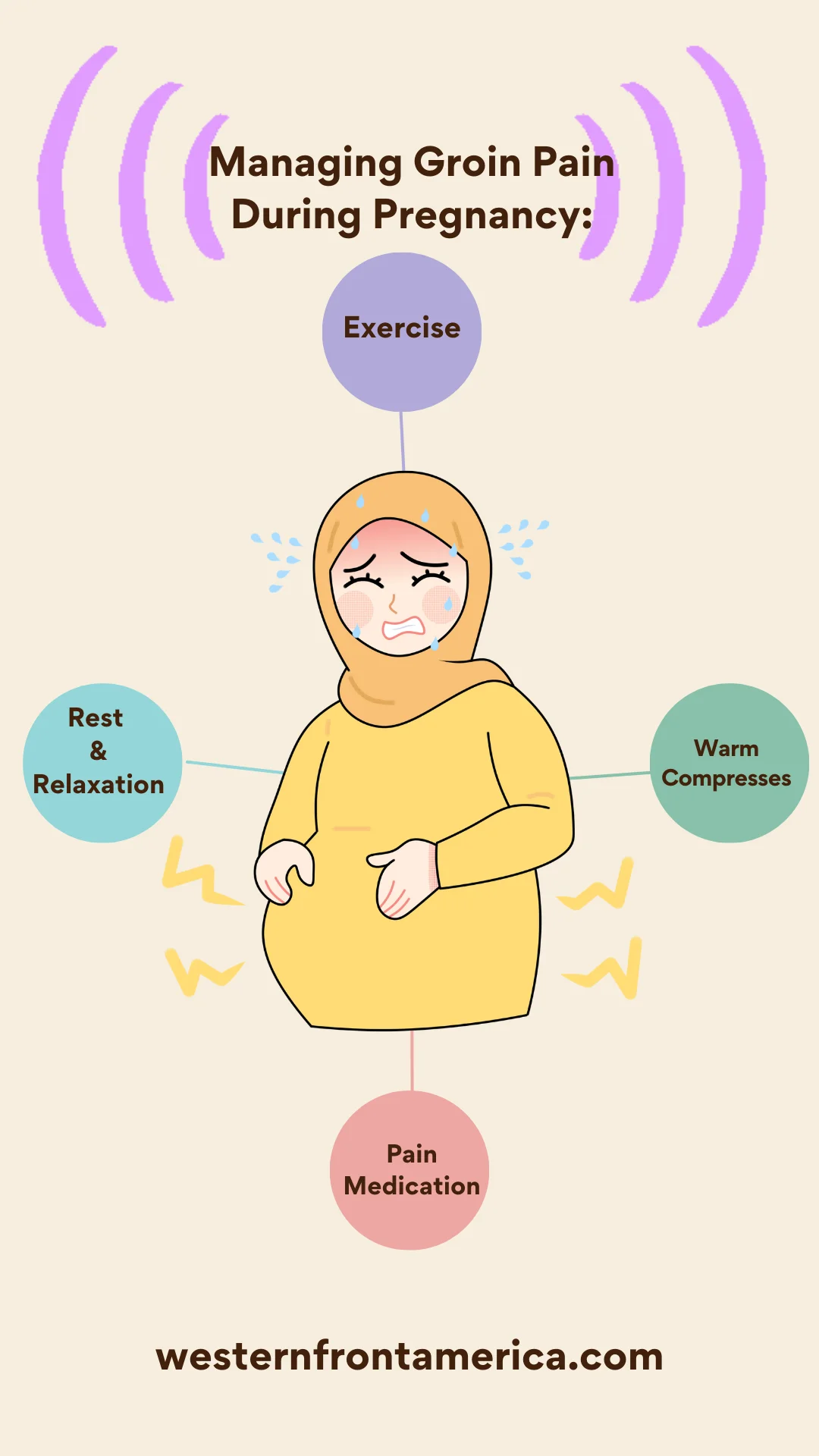Pregnancy is a time of many changes for a woman’s body, and some of these changes can be uncomfortable or even painful. One common complaint among pregnant women is groin pain, which can range from mild discomfort to severe pain. In this article, we’ll explore the causes of groin pain during pregnancy, how to manage it, and when to seek medical attention.
Causes of Groin Pain During Pregnancy:
Groin pain during pregnancy can have a variety of causes, including:
- Round Ligament Pain: The round ligaments are a pair of ligaments that support the uterus and stretch as the uterus grows during pregnancy. Round ligament pain is a common cause of groin pain during pregnancy and is characterized by a sharp, stabbing pain on one or both sides of the groin.
- Pubic Symphysis Dysfunction: The pubic symphysis is a joint that connects the two halves of the pelvis. During pregnancy, hormones can cause the pubic symphysis to become more flexible, which can lead to pain and discomfort in the groin area.
- Sciatica: Sciatica is a condition that occurs when the sciatic nerve, which runs from the lower back to the legs, becomes compressed or irritated. This can cause pain and discomfort in the groin area, as well as the lower back and legs.
- Urinary Tract Infection: Urinary tract infections are common during pregnancy and can cause pain and discomfort in the groin area, as well as other symptoms such as frequent urination and burning with urination.
Managing Groin Pain During Pregnancy:
There are several things that women can do to manage groin pain during pregnancy, including:
- Exercise: Regular exercise, such as walking or swimming, can help to strengthen the muscles in the pelvic area and reduce the risk of groin pain.
- Rest and Relaxation: Taking breaks throughout the day to rest and relax can help to reduce the pressure on the pelvis and alleviate groin pain.
- Warm Compresses: Applying warm compresses to the groin area can help to reduce pain and discomfort.
- Pain Medication: Over-the-counter pain medications, such as acetaminophen, can help to relieve mild to moderate groin pain during pregnancy. However, women should always consult with their healthcare provider before taking any medication during pregnancy.
When to Seek Medical Attention:
While groin pain during pregnancy is common and usually not a cause for concern, women should seek medical attention if they experience any of the following symptoms:
- Severe Pain: If the groin pain is severe, persistent, or accompanied by other symptoms such as fever or vaginal bleeding, women should seek medical attention right away.
- Difficulty Walking: If the groin pain makes it difficult to walk or perform daily activities, women should consult with their obstetrician/gynecologist (OB-GYN).
- Changes in Fetal Movement: If there are changes in fetal movement or other signs of fetal distress, women should seek medical attention right away.
Conclusion:
Groin pain during pregnancy is a common but often uncomfortable symptom that can have a variety of causes. Women can manage groin pain during pregnancy with regular exercise, rest and relaxation, warm compresses, and pain medication. However, they should seek medical attention if the pain is severe or accompanied by other symptoms such as fever or vaginal bleeding. With proper care and attention, women can have safe and healthy pregnancies and deliveries, even if they experience groin pain.

